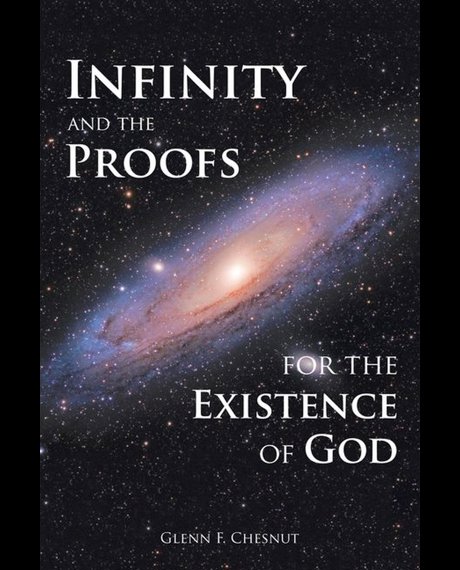Infinity and the Proofs for the Existence of God
Infinity and the Proofs for the Existence of God
€ 3,99
This book is more than just a set of logical proofs. It shows us who and what God is, and explains how our universe exploded into existence in the Big Bang, some 13.799 billion years ago, in such a way that all other Being in the universe derives its existence and nature — and its capacities for growth, power, moral character, change, and novelty — from God as the Ground of Being. This is a book for people who are interested in philosophy. It begins with a discussion of some of the fallacies into which the concept of infinity has led careless thinkers over the centuries. In particular, Chesnut demonstrates how often the modern defenses of atheism have been based on what are no more than pseudo-infinite regresses. This includes in particular self-delusive attempts to get rid of God by constructing what would be no more than imaginary universe-sized perpetual motion machines. The last half of the book then has as its central focus the set of Five Proofs for the Existence of God formulated by the great medieval thinker St. Thomas Aquinas, where Chesnut begins by showing how each of the proofs was interpreted in the middle ages. But the development of modern science requires that the Five Proofs be reworked for today, so he shows, for example, how the Proof from Motion can be reworded as an Argument from Energy, subject to the laws of thermodynamics, and how the Proof from Gradations in Truth and Value forces us to decide whether we will accept that at least some moral values are real, or instead will become what modern psychologists call psychopaths. This present book, combined with the work Chesnut authored nine years ago — God and Spirituality: Philosophical Essays — sets out an architectonic philosophical system for the twenty-first century, grounded on one side in the classics of the ancient Greco-Roman world and the medieval period, but on the other hand taking seriously the revolutionary changes in western thought produced by the development of twentieth-century science, including relativity, quantum theory, the uncertainty principle, and Gödel’s proof.
This book is more than just a set of logical proofs. It shows us who and what God is, and explains how our universe exploded into existence in the Big Bang, some 13.799 billion years ago, in such a way that all other Being in the universe derives its existence and nature — and its capacities for growth, power, moral character, change, and novelty — from God as the Ground of Being. This is a book for people who are interested in philosophy. It begins with a discussion of some of the fallacies into which the concept of infinity has led careless thinkers over the centuries. In particular, Chesnut demonstrates how often the modern defenses of atheism have been based on what are no more than pseudo-infinite regresses. This includes in particular self-delusive attempts to get rid of God by constructing what would be no more than imaginary universe-sized perpetual motion machines. The last half of the book then has as its central focus the set of Five Proofs for the Existence of God formulated by the great medieval thinker St. Thomas Aquinas, where Chesnut begins by showing how each of the proofs was interpreted in the middle ages. But the development of modern science requires that the Five Proofs be reworked for today, so he shows, for example, how the Proof from Motion can be reworded as an Argument from Energy, subject to the laws of thermodynamics, and how the Proof from Gradations in Truth and Value forces us to decide whether we will accept that at least some moral values are real, or instead will become what modern psychologists call psychopaths. This present book, combined with the work Chesnut authored nine years ago — God and Spirituality: Philosophical Essays — sets out an architectonic philosophical system for the twenty-first century, grounded on one side in the classics of the ancient Greco-Roman world and the medieval period, but on the other hand taking seriously the revolutionary changes in western thought produced by the development of twentieth-century science, including relativity, quantum theory, the uncertainty principle, and Gödel’s proof.
| Prijs | Verzendkosten | Totaal | |
|---|---|---|---|
€ 3,99 | € 0,00 | € 3,99 |
Alternatieve producten
© 2016 - 2024 aanbiedingchecker


/backgroundcolor(255,255,255)/jpg(90)/fetch/https://media.s-bol.com/R8Xl8kg8vxxO/j23Avq4/960x1200.jpg)
/backgroundcolor(255,255,255)/jpg(90)/fetch/https://media.s-bol.com/PzkLz9gR0Mvz/ANPX2nl/800x1200.jpg)
/backgroundcolor(255,255,255)/jpg(90)/fetch/https://media.s-bol.com/gQN9PRvVkKD3/N9nWlL8/756x1200.jpg)
/backgroundcolor(255,255,255)/jpg(90)/fetch/https://media.s-bol.com/nRvA4J8Y5A3p/802x1200.jpg)